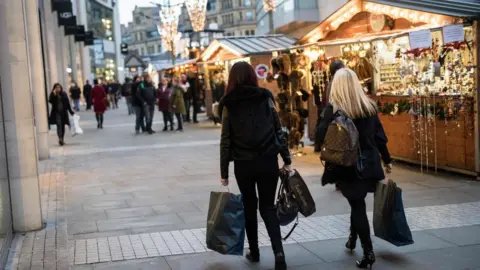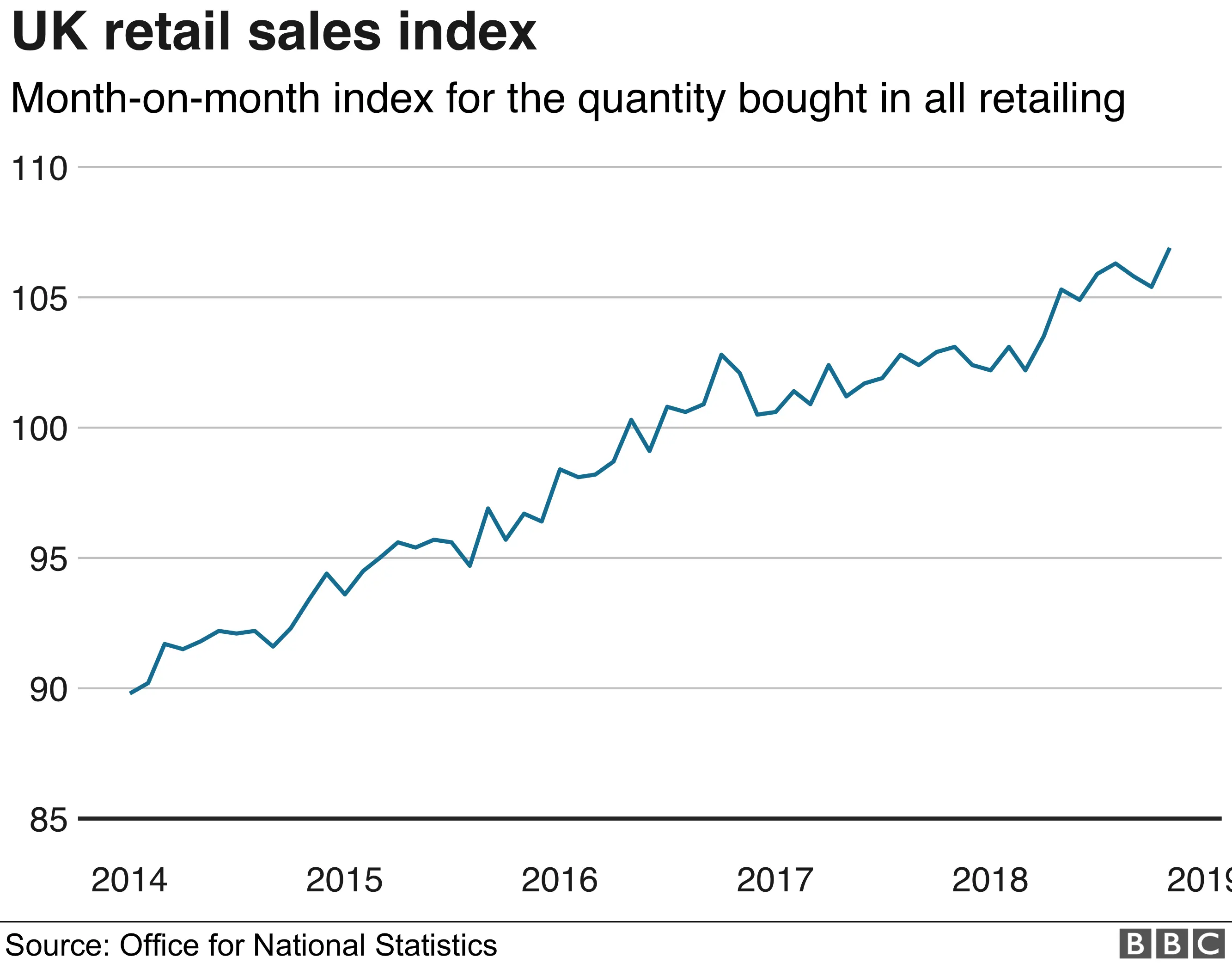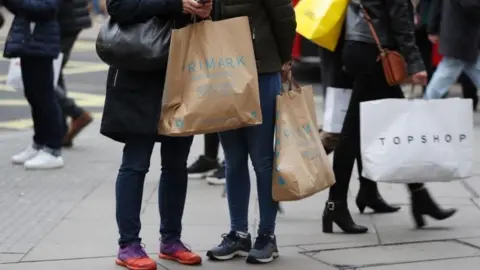UK retail sales in November jump more than expected
 Getty Images
Getty ImagesRetail sales jumped more than expected in November, helped by Black Friday promotions and stronger growth in sales of household goods.
Official figures showed sales rose 1.4% from October, despite economists' forecasts of about a 0.3% gain.
But for the three months to November, which smoothes out monthly volatility, sales growth was 0.4% on the previous quarter, the slowest rate since April.
Several retailers have warned of tough trading this winter.
Sports Direct boss Mike Ashley said November was "unbelievably bad", while Superdry and online retailer Asos have also warned of dismal trading.
The Office for National Statistics (ONS) said the changing nature of Black Friday sales promotions posed a challenge for the process of adjusting for seasonal variations.
Household goods sales leapt by 5.3% on the month in November, the biggest increase since the end of 2013 and driven by an 11% increase in electrical appliances. Online sales as a proportion of all retailing exceeded 20% for the first time, the ONS said.

Surveys from the British Retail Consortium and Barclaycard have suggested that households were continuing to shop cautiously in November.
However, recently consumers have seen the fastest growth in underlying pay growth since 2008, with inflation falling to a 20-month low of 2.3%, according to ONS figures released earlier this week.
Thomas Pugh, UK Economist at Capital Economics, said the stronger spending could point to a weaker December, but that the longer term trend was more positive.
He said: "With inflation continuing to fall back... and pay growth on the up, there should be scope for consumer spending growth to gather some momentum further ahead. [The] big picture is that a continued acceleration in real earnings, assuming a Brexit deal is signed, should give household spending a boost next year."
Philipp Gutzwiller, head of retail at Lloyds Bank Commercial Banking, said November data showed that "online is now truly coming of age".
He added: "More than perhaps any month before, the fact that overall sales rose in November was thanks to the relative success of Black Friday online compared with on the High Street."
The most recent high street and shopping centre footfall data for November, compiled by Springboard, showed the worst decline since the recession.

Analysis:
By Dharshini David, BBC economics correspondent
 PA
PAIt turns out Christmas came early - but may not have been quite the bumper gift that some retailers were anticipating. Black Friday is increasingly a fixture in the festive shopping calendar, shifting Christmas spending from December to November.
The ONS, which produces the retail figures, smooth them out to allow for seasonal patterns, but their adjustment process may not have yet caught up with what is still quite a new phenomenon.
So, the "adjusted" increase in the amount of goods sold between October and November may appear stronger than it should. And it's clear that shifting more goods in November came at a heavy price for retailers such as Asos, which had to discount heavily to keep up with competitors, damaging profits.
Beyond the November headline, the underlying trend in spending is slowing - growing by 0.4% over the last four months. That's the weakest rate since April, and doesn't bode well for retailers or the economy as a whole.
And if Christmas shopping is happening earlier, December could disappoint. Indeed, a survey from CBI points to weakest growth in sales this month for over a year.

